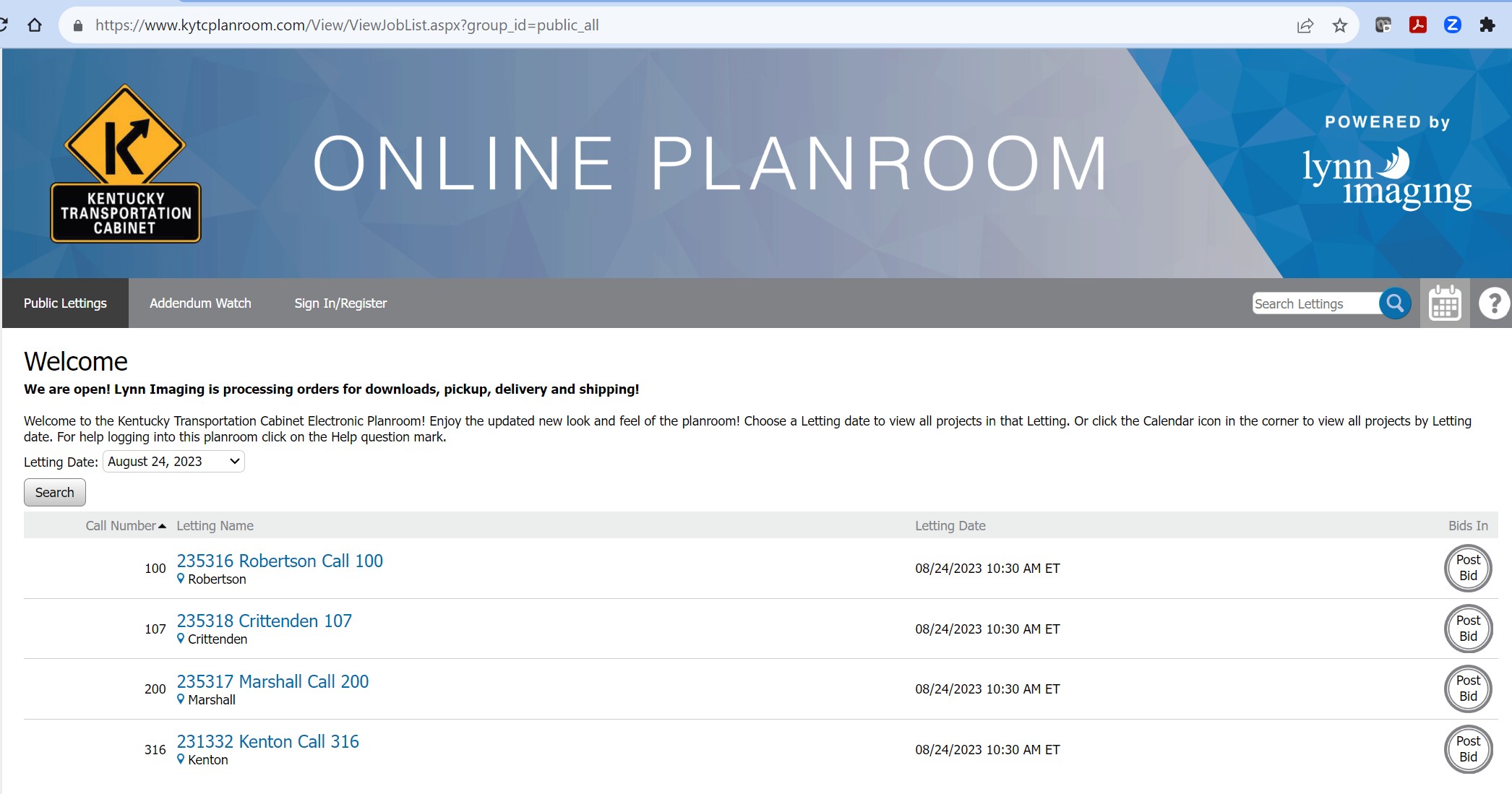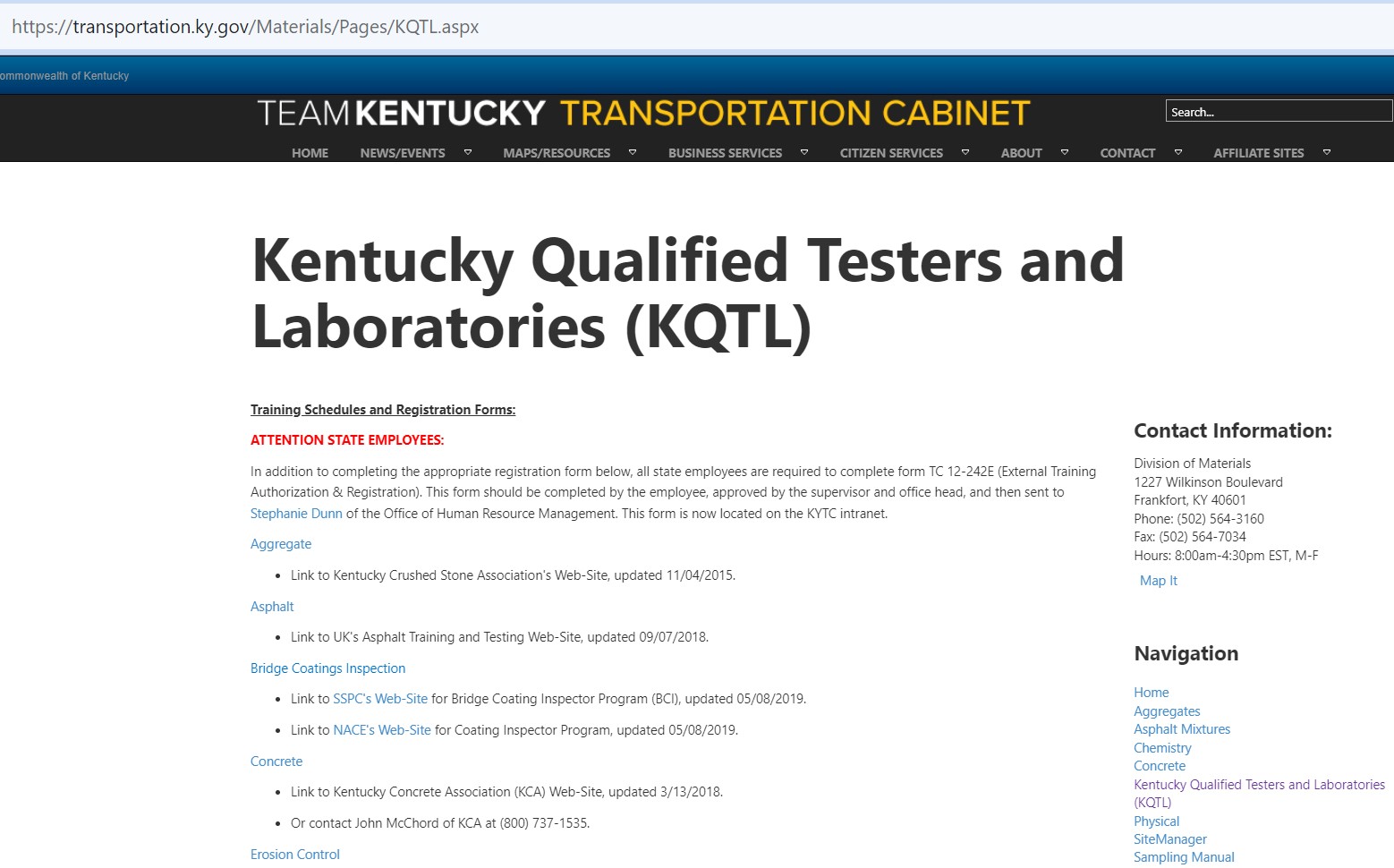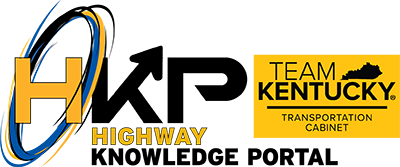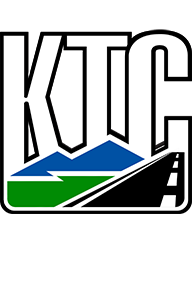Search for articles or browse our knowledge portal by topic.
Planning and Preparation for a Construction Project

Once the contract is awarded, the Section Engineer obtains a copy of the project plans (if applicable). Plans can be obtained from ProjectWise and ensuring stamped contract set. Plans can also be viewed and downloaded from Electronic Planroom.

Then, the SE downloads the final proposal and Q&A from Construction Procurement website and reviews all Q&A, Special Proposal Notes, and applicable specifications to prepare for the Preconstruction Conference and beginning of work. The SE should be aware of Contract Time and any Milestone dates. Review the contract if any DBE requirements are listed.

After the Contract is awarded, the Engineer may schedule a Preconstruction Conference. All projects should include a preconstruction meeting, and Section 108.3 of the Standard Specifications outlines the requirements of the conference.
The contractor shall submit a written narrative as described in Section 108.2 A of the Standard Specifications. The narrative describes the types of projects and must be submitted two days before the Preconstruction Conference. If a Preconstruction Conference is not needed, the narrative may be submitted two working days prior to the start of work.
The Preconstruction Conference described in Section 108.03 of the Standard Specifications allows the contractual parties of the project to gain a similar understanding of the project schedule, project issues, party responsibilities, and project goals. The discussions and agreements that occur at this conference should be audio recorded as well as recorded in writing. The Engineer will keep this documentation in the project file. The written or audio documentation of this conference will be provided to the Contractor and to other parties in attendance.
The Preconstruction Conference is comprised of three meetings that may be held concurrently or at separate times and places. These meetings include a Preconstruction Meeting, a Right-of-Way and Utilities Meeting, and an EEO and DBE/WBE Meeting. The TC63-64 Pre-Construction Conference Checklist should be use for documentation of the meeting.
Additional parties to be included are, when applicable: KYTC staff, subcontractors, FHWA, all involved utilities companies, municipal and/or county engineers, railroad, and other specialized or interested parties.
The Preconstruction Meeting should involve discussions of, but not be limited to, the following:
- Project information
- Project Plans & Proposal
- Key personnel: names of the project superintendent, the safety officer, the project and company EEO officers, Project Traffic 108-4 Coordinator, and the names and telephone numbers of persons responsible for traffic control (24 hours per day, 7 days a week)
- Materials, suppliers, equipment (owned/rented), subcontractors, and personnel resources
- DBE/WBE Work (if applicable): The Contractor should present a letter from each DBE/WBE subcontractor designating the superintendent and stating that this individual is not affiliated with the prime contractor.
- Contract time and Project Progress Schedule for the entire project: key dates, local events, project milestones, Department responsible activities, workday/hour restrictions, maintenance of traffic, and work methods. Section 108.02 of the Standard Specifications provides additional detail on required scheduling documents. A written narrative (TC 63-50 Written Narrative Schedule) should be submitted.
- Permits
- Staking: designated by a Professional Engineer or Land Surveyor licensed in the Commonwealth of Kentucky
- Environmental issues: inspector, BMP, seeding, and spill prevention plans
- Blasting
- Borrow and Excess Excavation Sites: see Section 205 of Standard Specifications
- Hauling limitations
- Public and worker safety plans
- Traffic Control Plans: traffic signing diagrams should be presented. Requirements for future meetings: the Contractor should hold Prepave, Pre-pour, and any other preliminary meeting the Engineer requests
For projects with DBE and/or WBE goals, an additional meeting will be held before beginning work. The subcontractor(s) and/or supplier(s) will be identified by the superintendent. Additionally, a discussion about prompt payments, payroll submission requirements, and deadlines will be included.
A Labor Compliance meeting will be held with the prime and subcontractors. Subjects discussed will be Labor compliance, provisions, submission of payrolls, necessary posters, EEO, and trainee’s minimum wages requirements.
During the Preconstruction meeting, a discussion of Project contract time should occur. If a contract is not completed within the date or days specified, a specified rate of liquidated damages per day is assessed against the contract as stated in Section 108.09 of the Standard Specifications Contracts can have various overall completion times or phased completion times. Additionally, Liquidated damages (LDs) can be assessed for key dates or time frames.
A Specified Date of Completion project is completed on or before the specified date of completion or if modified by agreed change order contract, a new specified date. A Working Day project is completed before the number of working days expires.
Workday projects are charged for each day the contractor is able to work over five hours on the controlling item of work. If wet conditions or temperatures do not allow over five hours of work to be performed, a day is not charged. Holidays, weekends and December 1 to March 31 are not charged as working days regardless of work by contractor. The Section Engineer in conjunction with the contractor should determine the controlling item(s) of work. When the Contract time is specified in working days the Engineer will charge all working days that occur, beginning with the 31st calendar day following the date of the Notice to Begin Work, even when the Contractor is not performing work.
Calendar day projects are assessed for each day once a contractor begins work on the project up until the work is determined complete by Section Engineer. When contract time is specified in calendar days, the Engineer will charge (to the contract) every calendar day, beginning with the calendar day following the date of the Notice to Begin Work, including all Saturdays, Sundays, holidays, and non-working days.
The SE should send bi-weekly working day or calendar reports to the contractor as work is progressing to keep them aware of their remaining allotted days.

Plans for control points and benchmarks should be reviewed. If there is a bid item for staking, Section 201.03.01 of the Standard Specifications outline that the Contractor shall re-establish centerline and set additional points as necessary. Additionally, Contractor shall run a benchmark loop to confirm elevations available at key points of the project. Documentation for benchmarks shall be submitted to the Project Engineer. Equipment should be available for checks of contractor staking. If there is no bid item for staking, KYTC staff is required to perform the staking.
All documentation and data should be uploaded to the project specific folder in Projectwise and filed under the appropriate subfolder.
The full definitions for terms included in this article (listed below) can be found in the HKP Glossary.
- BMP
- DBE
- EEO
- WBE
- SE

